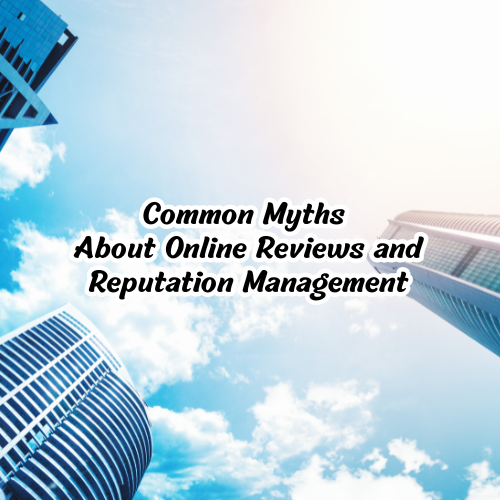An effective online reputation management is vital for every business in today's digital world. By focusing on a few key factors, companies can create a powerful online presence that dramatically influences how people view them.
Engaging with customers through positive reviews and promptly resolving negative feedback helps build trust and credibility, which is needed for long-term growth. Additionally, leveraging social media platforms to showcase authentic and engaging content can amplify your brand's reach and reputation.
8 Main Components of Effective Online Reputation Management
1. Solid Digital Presence
You must establish a strong digital presence to manage your online reputation correctly. This begins with creating and improving various internet channels, including websites, social media accounts, review platforms, and industry directories. Consistent branding throughout various media promotes a cohesive and polished brand image.
Businesses should proactively check their search engine results pages (SERPs) to ensure that accurate and relevant information about their brand is prominently displayed. Effective search engine optimization (SEO) strategies can assist in driving down harmful material while elevating good content in search ranks.

2. Strong Brand Identity
Creating a unique and consistent brand identity is essential for gaining client trust and awareness. A consistent brand voice, tone, and visual style increases authenticity and deepens connections with your audience.
Crafting captivating stories representing the brand's values, goals, and vision enables organizations to influence how their target audience perceives them. Consistent sharing of these stories across all media strengthens the brand's identity.
3. Exceptional Customer Service
Excellent customer service is essential for maintaining a positive internet reputation. Responding quickly to customer issues or complaints displays the brand's dedication to customer satisfaction and effective issue resolution.
Companies must regularly monitor their social media channels, review sites, and other online platforms to respond quickly to client requests and feedback. Responding professionally and compassionately may transform unpleasant circumstances into good ones.
Furthermore, organizations should constantly meet their promises and aim to provide excellent client experiences. Positive referrals from satisfied clients are critical in building a strong internet reputation.
4. Employee Advocacy
Employees have a huge impact on a brand's online reputation. Brands may increase their credibility and authenticity by encouraging customers to actively interact in the brand's online presence, share good experiences, and contribute to thought leadership activities.
Employee training on the effective and responsible use of social media helps to reduce possible hazards to the brand's reputation. Empowering workers to serve as brand ambassadors broaden the company's reach and improve its online image.
Start protecting your online reputation today!
5. Continuous Monitoring and Analysis
Monitoring online conversations regarding your brand consistently is vital for effective reputation management. Social listening solutions enable organizations to track brand mentions and sentiment and develop trends.
Analyzing data acquired through social listening provides significant insights into consumer sentiment, identifies areas for improvement, and enables proactive issue resolution. This thorough awareness of how the brand is regarded enables companies to make educated actions that protect and improve their reputation.
6. Active Customer Feedback and Engagement
Proactively soliciting consumer feedback via surveys, reviews, or testimonials builds credibility and demonstrates openness. Positive customer evaluations boost the brand's reputation and provide persuasive social evidence to prospective consumers.
Engaging with clients via social media platforms, blogs, or forums establishes a direct contact line for companies. Prompt or timely replies to queries or difficulties show the brand's respect for client input and commitment to outstanding service.
7. Strategic Content Creation
Creating relevant content that resonates with your target audience is critical for building a strong online reputation. Businesses may promote themselves as industry experts by sharing their knowledge, ideas, and thought leadership.
A good strategy involves creating various content types, such as blogs, videos, infographics, and whitepapers. Regularly generating high-quality content increases the brand's trust and improves its visibility in search engine results.
8. Comprehensive Competitor Analysis
Staying current on rivals' online reputations is critical for maintaining a competitive edge. Conducting frequent competitor studies allows organizations to compare their online status to industry peers.
Businesses may gain useful insights about improving online presence by identifying rivals' reputational strengths and flaws. This insight enables educated decision-making and helps the brand remain relevant and competitive digitally.

Conclusion
Effective online reputation management is key to corporate success in today's digitally-driven world. A strong online reputation builds consumer trust, shapes brand perception, and reduces reputational risk.
Businesses can effectively manage their online reputation and thrive in the digital arena by prioritizing a strong digital footprint, cultivating a distinct brand identity, providing exceptional customer service, leveraging employee advocacy, consistently monitoring online discussions, actively engaging with customers, executing a strategic content strategy, and conducting thorough competitor analysis.









